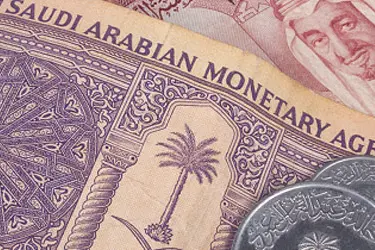PHOTO
31 January 2017
The decline in oil prices globally has hit many countries hard but one country hit particularly hard with the decline in oil prices is the Kingdom of Saudi Arabia. The Kingdom derives 3/4 of its tax revenue from oil and gas production. As a result of the massive decline in oil prices the 2016 budget has a 326 billion riyal (87 billion USD) deficit which is down from 367 billion riyals (98 billion USD).
The government will cut spending and more importantly cut subsidies for water, electricity and petroleum products. In order to drive revenue, the government will implement the VAT model the Gulf Cooperation Council approved in October. VAT implementation is a common topic around the Persian Gulf but it has not moved forward very much. Other countries in the region have discussed VAT implementation but have delayed the implementation most notably the United Arab Emirates. The Saudi Budget statement is pushing for a VAT earlier than other Gulf states had agreed to, which could cause some friction.
One reason for this has been many of these countries have been able to avoid implementing any kind of consumption tax because oil prices have generally rebounded. However, now oil prices are at 12 year low which has made many countries including Saudi Arabia rethink their tax policy. The proposed VAT in Saudi Arabia will likely have a standard rate of 5%, well below the global average. If implemented in Saudi Arabia this would start the chain of VAT implementations across the region, which all have strong levels of consumption but lack any kind of indirect tax regime. Egypt has attempted to implement a VAT to replace its Sales Tax in order to generate additional revenue to help rebuild its economy. However, the implementation has been postponed many times because of public opposition and a lack of political will. Most likely the implementation a VAT along with the belt-tightening will be unpopular in the Gulf States as well.
© Thomson Reuters 2017
The decline in oil prices globally has hit many countries hard but one country hit particularly hard with the decline in oil prices is the Kingdom of Saudi Arabia. The Kingdom derives 3/4 of its tax revenue from oil and gas production. As a result of the massive decline in oil prices the 2016 budget has a 326 billion riyal (87 billion USD) deficit which is down from 367 billion riyals (98 billion USD).
The government will cut spending and more importantly cut subsidies for water, electricity and petroleum products. In order to drive revenue, the government will implement the VAT model the Gulf Cooperation Council approved in October. VAT implementation is a common topic around the Persian Gulf but it has not moved forward very much. Other countries in the region have discussed VAT implementation but have delayed the implementation most notably the United Arab Emirates. The Saudi Budget statement is pushing for a VAT earlier than other Gulf states had agreed to, which could cause some friction.
One reason for this has been many of these countries have been able to avoid implementing any kind of consumption tax because oil prices have generally rebounded. However, now oil prices are at 12 year low which has made many countries including Saudi Arabia rethink their tax policy. The proposed VAT in Saudi Arabia will likely have a standard rate of 5%, well below the global average. If implemented in Saudi Arabia this would start the chain of VAT implementations across the region, which all have strong levels of consumption but lack any kind of indirect tax regime. Egypt has attempted to implement a VAT to replace its Sales Tax in order to generate additional revenue to help rebuild its economy. However, the implementation has been postponed many times because of public opposition and a lack of political will. Most likely the implementation a VAT along with the belt-tightening will be unpopular in the Gulf States as well.
© Thomson Reuters 2017





















